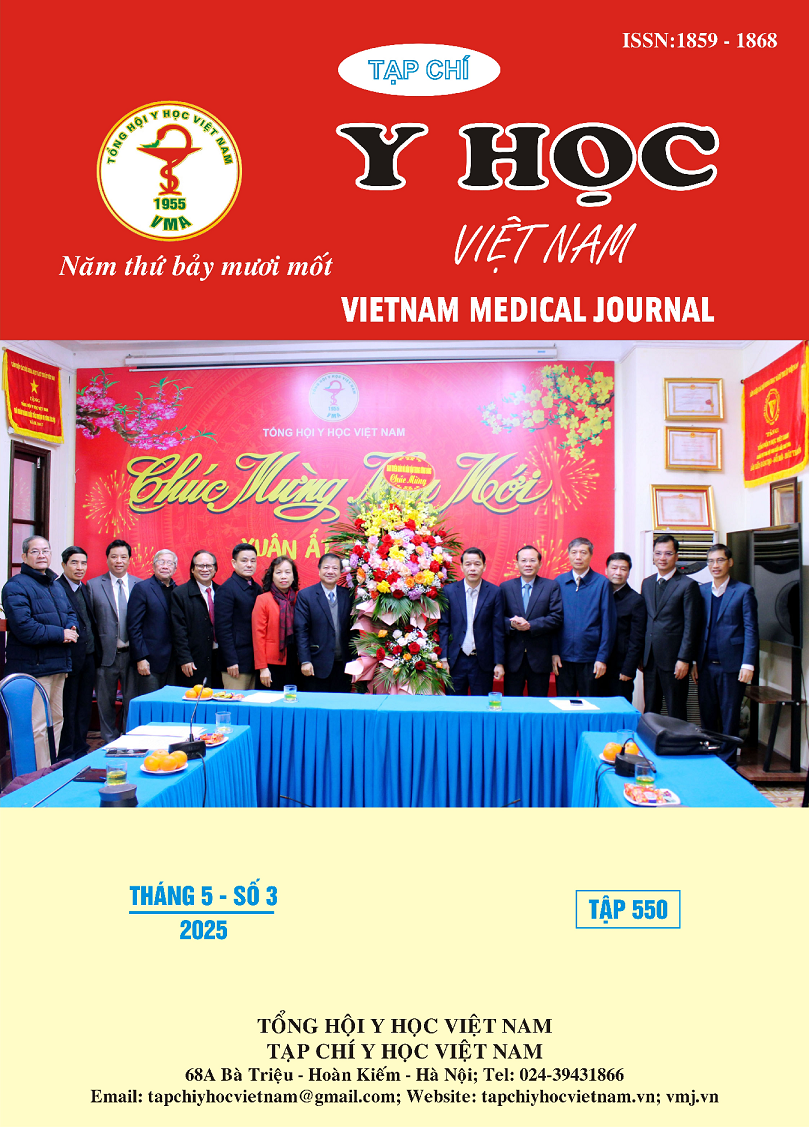ANALYZE A NUMBER OF FACTORS RELATED TO THE KNOWLEDGE, ATTITUDES AND BEHAVIORS OF PARENTS OF CHILDREN WITH REFRACTIVE ERRORS
Main Article Content
Abstract
Objective: Analyze a number of factors related to the knowledge, attitudes and behaviors of parents of children with refractive errors. Research method: Cross-sectional description 336 parents of children with refractive errors. Results: Knowledge about refractive errors was better in the group of parents <40 years old, in urban areas, with education level above high school, family history of refractive errors and information sources about refractive errors via the Internet (p<0.05). Attitudes about refractive errors were better in the group of parents with refractive errors > high school, taking their children for eye exams from the second time onwards and having a family history of refractive errors (p<0.05). Behaviors to prevent refractive errors were better in the group of parents in urban areas, with education level above high school, with family history of refractive errors, taking their children for eye exams from the second time onwards and having information sources about refractive errors via the Internet (p<0.05). Knowledge, attitudes and behaviors of parents were positively correlated (r>0). The group of parents with good knowledge level is 4.583 times more likely to have good attitude and 2.171 times more likely to have good behavior than the group of parents with poor knowledge level. Conclusion: Knowledge, Attitude and Behavior about refractive errors of young parents are closely related to age, education level and family history of refractive errors. Attitude and Behavior about refractive errors of young parents are better in the group of parents who bring their children to see a doctor from the second time onwards. Behavior about refractive errors of young parents is also related to the urban area of residence. The group of parents with good knowledge level is more likely to have good attitude and behavior than the group of parents with poor knowledge level.
Article Details
Keywords
refractive error, knowledge, attitude, behavior, parents
References
2. Phí Vĩnh Bảo, Nguyễn Văn Tập, Nguyễn Thanh Bình và cộng sự (2017). Kiến thức thực hành về phòng chống tật khúc xạ của học viên tại 3 trường đại học Trần Đại Nghĩa, Nguyễn Huệ và Ngô Quyền. Tạp chí Y học Việt Nam, 456 (2), 142-146.
3. Desalegn A, Tsegaw A, Shiferaw D et al (2016). Knowledge, attitude, practice and associated factors towards spectacles use among adults in Gondar town, northwest Ethiopia. BMC Ophthalmol, 16(1), 184.
4. Nguyễn Hữu Lê (2020). Can thiệp truyền thông nâng cao ý thức và thực hành của cha mẹ về phòng chống tật khúc xạ cho học sinh tiểu học tại trường tiểu học Hà Huy Tập II, thành phố Vinh, Nghệ An, Luận án Tiến sĩ Y tế, Trường Đại Học Y Tế Công Cộng, 40-69, 111.
5. Alemayehu AM, Belete GT, Adimassu NF (2018). Knowledge, attitude and associated factors among primary school teachers regarding refractive error in school children in Gondar city, Northwest Ethiopia. PLoS One, 13(2).
6. Alrasheed SH, Alghamdi WM (2022). Parents' Awareness of and Perspectives on Childhood Refractive Error and Spectacle Wear in Saudi Arabia. Sultan Qaboos Univ Med J, 22(4), 532-538.
7. Rosman M, Wong TY, Wong W et al (2007). Knowledge and beliefs associated with refractive errors and undercorrection: the Singapore Malay Eye Study. Br J Ophthalmol, 93(1), 4-10.
8. Habiba U, Ormsby GM, Butt ZA et al (2017). Knowledge and practices of teachers associated with eye health of primary school children in Rawalpindi, Pakistan. Taiwan J Ophthalmol, 7(1), 28-33.


